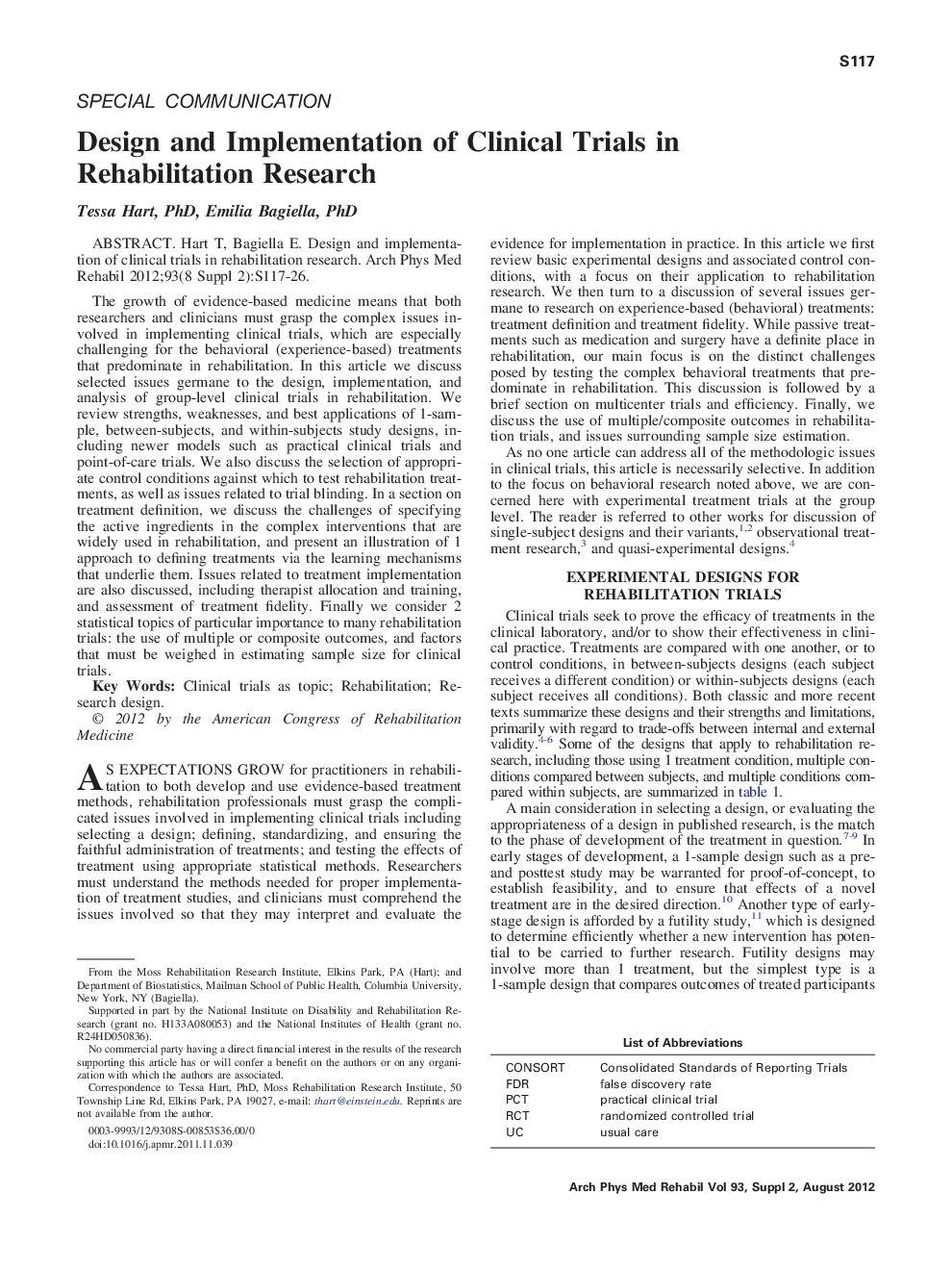| Article ID | Journal | Published Year | Pages | File Type |
|---|---|---|---|---|
| 3449741 | Archives of Physical Medicine and Rehabilitation | 2012 | 10 Pages |
Abstract
The growth of evidence-based medicine means that both researchers and clinicians must grasp the complex issues involved in implementing clinical trials, which are especially challenging for the behavioral (experience-based) treatments that predominate in rehabilitation. In this article we discuss selected issues germane to the design, implementation, and analysis of group-level clinical trials in rehabilitation. We review strengths, weaknesses, and best applications of 1-sample, between-subjects, and within-subjects study designs, including newer models such as practical clinical trials and point-of-care trials. We also discuss the selection of appropriate control conditions against which to test rehabilitation treatments, as well as issues related to trial blinding. In a section on treatment definition, we discuss the challenges of specifying the active ingredients in the complex interventions that are widely used in rehabilitation, and present an illustration of 1 approach to defining treatments via the learning mechanisms that underlie them. Issues related to treatment implementation are also discussed, including therapist allocation and training, and assessment of treatment fidelity. Finally we consider 2 statistical topics of particular importance to many rehabilitation trials: the use of multiple or composite outcomes, and factors that must be weighed in estimating sample size for clinical trials.
Keywords
Related Topics
Health Sciences
Medicine and Dentistry
Medicine and Dentistry (General)
Authors
Tessa PhD, Emilia PhD,
